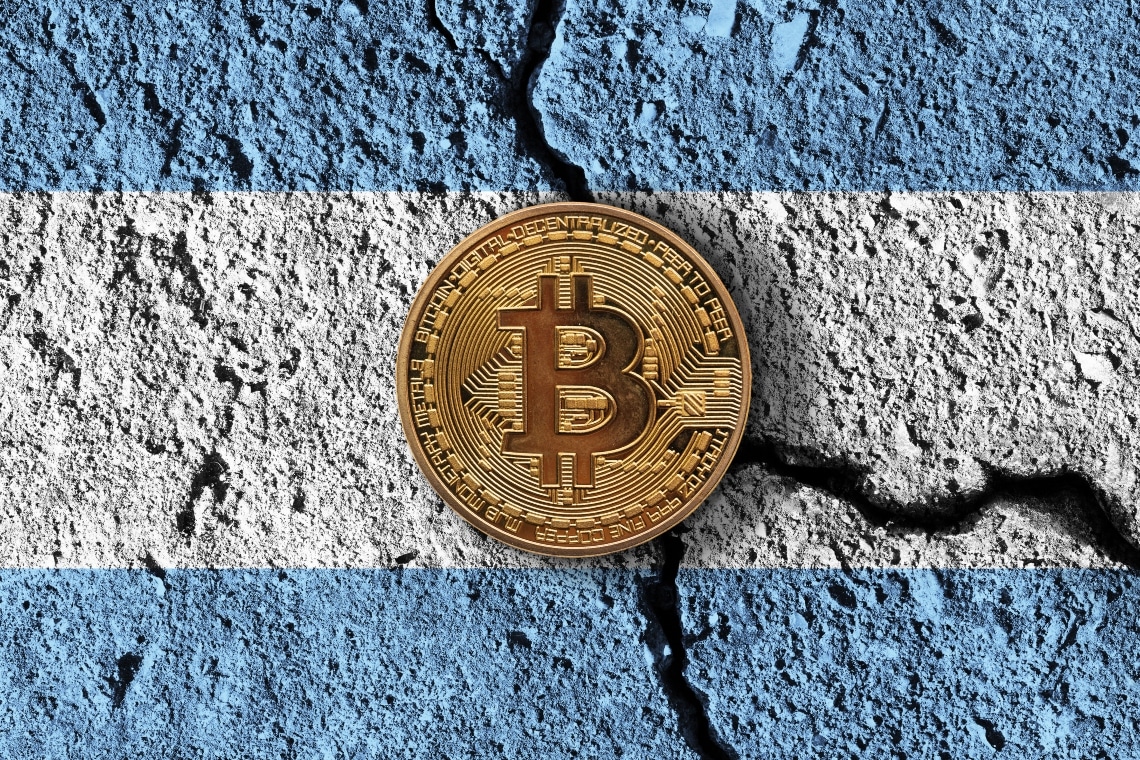The recent Argentine legislative initiative to regulate undeclared cryptocurrencies reflects a paradigm shift in fiscal and financial policy.
The Law of bases and starting points for the freedom of Argentinians, introduced on December 27th, outlines a comprehensive approach to the regularization of assets, which includes cryptocurrencies in particular.
Summary
Argentina wants to regulate undeclared cryptocurrencies
According to this regulation, taxpayers have the possibility to legitimize cryptocurrencies without the burden of providing “additional documentation” on the origin of these assets.
The regulatory framework outlines a clear path for taxpayers, with a lump-sum tax on assets imposed as part of the regularization scheme.
In particular, a 5% tax applies if the holdings are declared by the end of March 2024, which increases to 10% from April to June 2024 and reaches 15% from July to September 2024.
It is noteworthy that this initiative is under the leadership of the new government, led by self-proclaimed libertarian Javier Milei. This is in line with Milei’s reformist agenda, which emphasizes economic, fiscal, and electoral reforms as part of a broader legislative overhaul.
If the law on the foundations and starting points for the freedom of Argentinians is a significant legislative step, the broader economic landscape has seen further measures. In December, the decree “Foundations for the reconstruction of the Argentine economy” was issued, suggesting an economic reform and deregulation.
Although not explicitly mentioning cryptocurrencies, the decree allows debtors to settle their obligations in currencies not recognized as legal tender in Argentina.
In addition, in December Diana Mondino, Argentine Minister of Foreign Affairs, International Trade and Worship, hinted at the possible inclusion of Bitcoin and other cryptocurrencies under certain conditions.
This indicates a nuanced approach to integrating digital assets into the country’s economic fabric.
Javier Milei, the prominent figure in the recent Argentine political landscape, has been particularly associated with embracing Bitcoin, characterizing it as a step towards returning money to the private sector.
The new president is ready to open the country to cryptocurrencies
Despite the challenges of inflation, the Milei government has not publicly expressed its views on digital assets since taking office.
In a context of Milei’s rise to power and economic challenges, the government’s openness towards cryptocurrencies represents a significant departure from conventional financial norms.
The broader context of these legislative changes is to address the pressing economic concerns, particularly the rampant inflation that has plagued Argentina.
The decision to include cryptocurrencies in the asset regularization scheme is a recognition of the evolving role of digital assets in the global financial landscape.
By allowing taxpayers to legalize cryptocurrencies without exhaustive documentation requirements, the government recognizes the unique nature of digital currencies and their decentralized nature.
The specific tax structure outlined in the legislation reflects a pragmatic approach, with tax rates varying depending on the time of declaration.
This nuanced strategy aims to encourage swift compliance, while also taking into account taxpayers who may need additional time to assess and accurately declare their cryptocurrency holdings.
The decree “Bases for the reconstruction of the Argentine economy”, although not explicitly mentioning cryptocurrencies, adds another layer to the evolving narrative.
Allowing debtors to settle obligations in non-legal tender currencies indicates a broader acceptance of alternative forms of payment, potentially laying the groundwork for a more diversified financial ecosystem.
Diana Mondino’s mention of Bitcoin and other cryptocurrencies under specific conditions further highlights the government’s willingness to explore innovative financial solutions.
As the regulatory landscape continues to evolve, clarity on these conditions will be crucial for businesses and individuals navigating the intersection between traditional and digital finance.
Final considerations
Although Milei’s initial reference to Bitcoin as a movement to return money to the private sector set the tone for his government’s position on digital assets, the lack of subsequent public statements on the issue leaves room for speculation.
The evolving nature of the cryptocurrency space requires a continuous commitment and adaptation from regulatory authorities to ensure a balance between innovation and regulatory oversight.
In conclusion, Argentina’s legislative incursion into the regularization of cryptocurrencies is a crucial development in the global cryptocurrency landscape.
By providing a clear path for taxpayers to legitimize their involvement in cryptocurrencies, the government promotes transparency and aligns with the growing acceptance of digital assets. With the evolution of these regulatory changes, stakeholders will closely monitor their impact on economic dynamics, investor sentiment, and the broader Argentine financial ecosystem.


